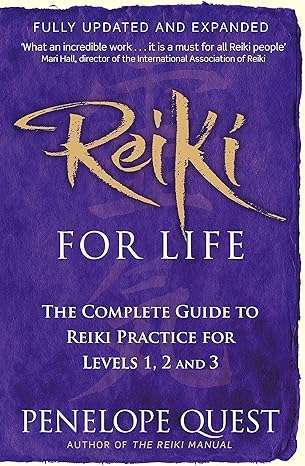Introduction
Reiki, the Japanese healing art that taps into universal life energy, is not just a hands-on technique but also a philosophy for living. At its heart are the Five Reiki Principles, which serve as a moral and spiritual compass for Reiki practitioners. These principles, often referred to as the “Five Reiki Precepts” or “Five Reiki Ideals,” offer valuable guidance for leading a more balanced, mindful, and compassionate life. In this article, we’ll explore these principles and their significance in Reiki practice.
The Five Reiki Principles
The Five Reiki Principles are typically recited in Japanese during Reiki training, and various translations exist. Here, we’ll present a commonly used English interpretation:
Just for today, I will not be angry.
This principle emphasizes the importance of letting go of anger, resentment, and negativity. By releasing anger, we free ourselves from its harmful effects on our physical and emotional well-being.
Just for today, I will not worry.
Worry and anxiety can be draining and counterproductive. This principle encourages us to trust the flow of life, stay present, and avoid unnecessary worry about the future.
Just for today, I will be grateful.
Gratitude is a powerful force for positive change. Cultivating an attitude of gratitude can lead to increased happiness and contentment in our lives.
Just for today, I will do my work honestly.
Honesty and integrity are essential in Reiki practice. This principle reminds us to be truthful in our actions and dealings with others.
Just for today, I will be kind to every living thing.
Compassion is at the core of Reiki. This principle encourages us to extend kindness and empathy not only to humans but to all living beings, including animals and nature.
Understanding the Principles
While these principles are simple to understand, their practice can be transformative. Here’s a closer look at each one:
- Anger: Releasing anger allows for emotional healing and prevents it from harming our physical and mental health.
- Worry: Letting go of worry frees our minds to focus on the present moment, where true peace can be found.
- Gratitude: Practicing gratitude opens our hearts to the abundance in our lives, fostering joy and contentment.
- Honesty: Honesty builds trust in ourselves and in our interactions with others, leading to healthier relationships.
- Kindness: Extending kindness to all living beings aligns us with the interconnectedness of life, promoting harmony.
Incorporating the Principles
You don’t need to be a Reiki practitioner to benefit from these principles. They offer guidance for leading a more conscious and fulfilling life. Consider how you can incorporate them into your daily routine:
- Take a moment each morning to recite the principles and reflect on their meaning.
- When faced with challenges, ask yourself how these principles can guide your response.
- Practice forgiveness, both toward others and yourself, as a way to release anger.
- Keep a gratitude journal to remind yourself of the things you’re thankful for.
- Show kindness and compassion to all living beings, from people to animals and plants.
Conclusion
The Five Reiki Principles are more than words; they are a path to a more balanced, mindful, and compassionate existence. By embracing these principles, you can create positive changes in your life and contribute to a more harmonious world. Whether you’re a Reiki practitioner or simply seeking a more fulfilling life, these principles offer valuable guidance on your journey.













